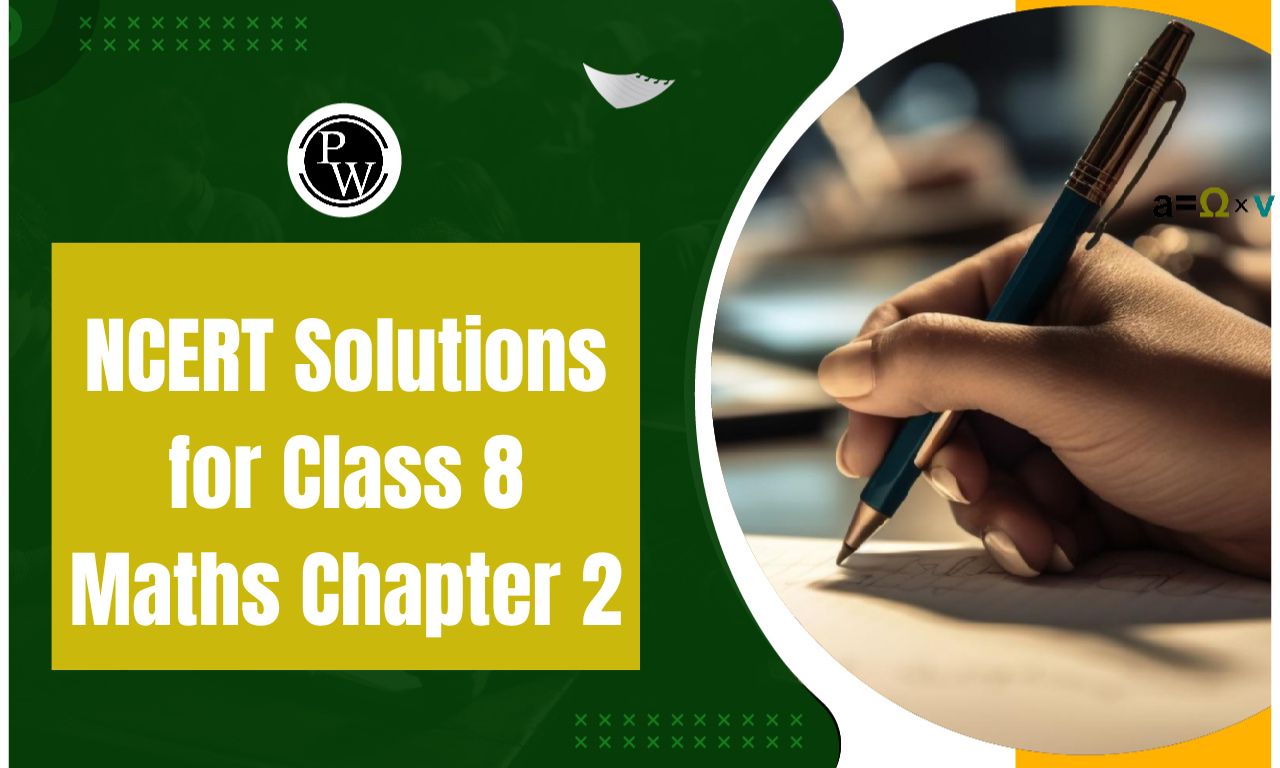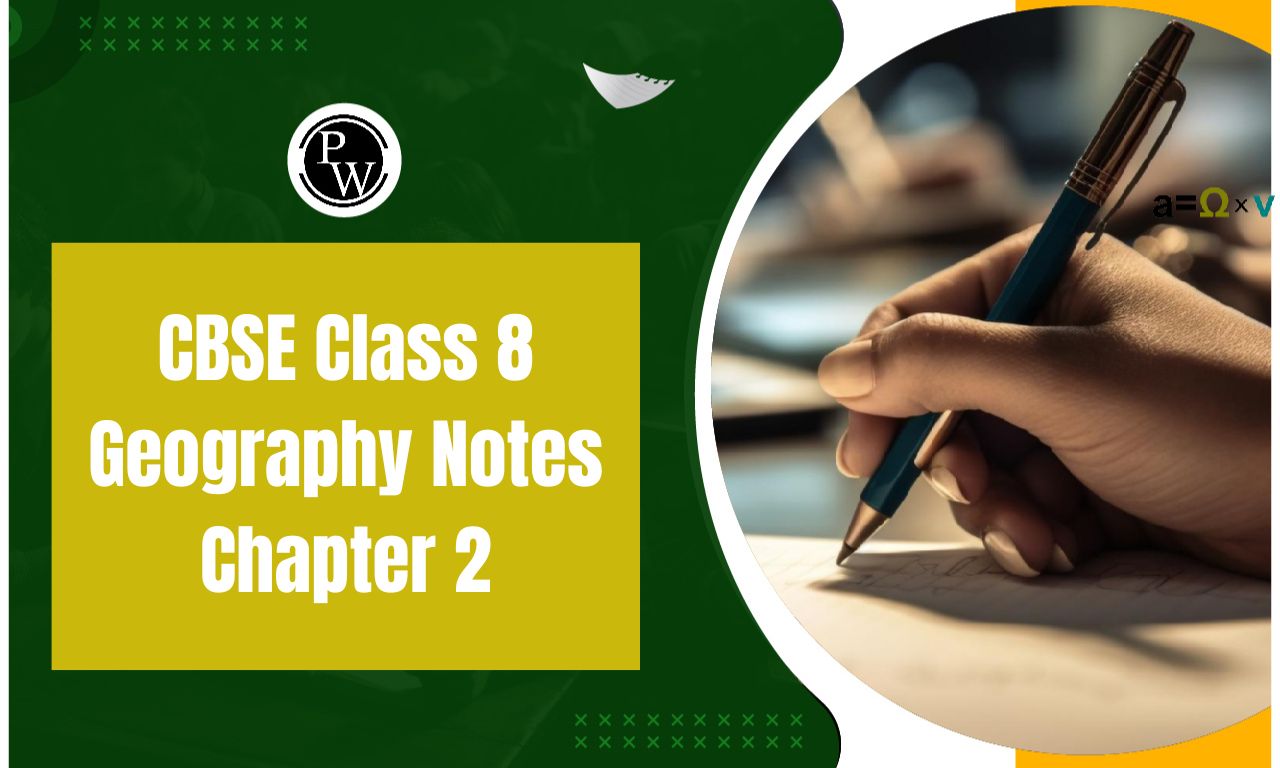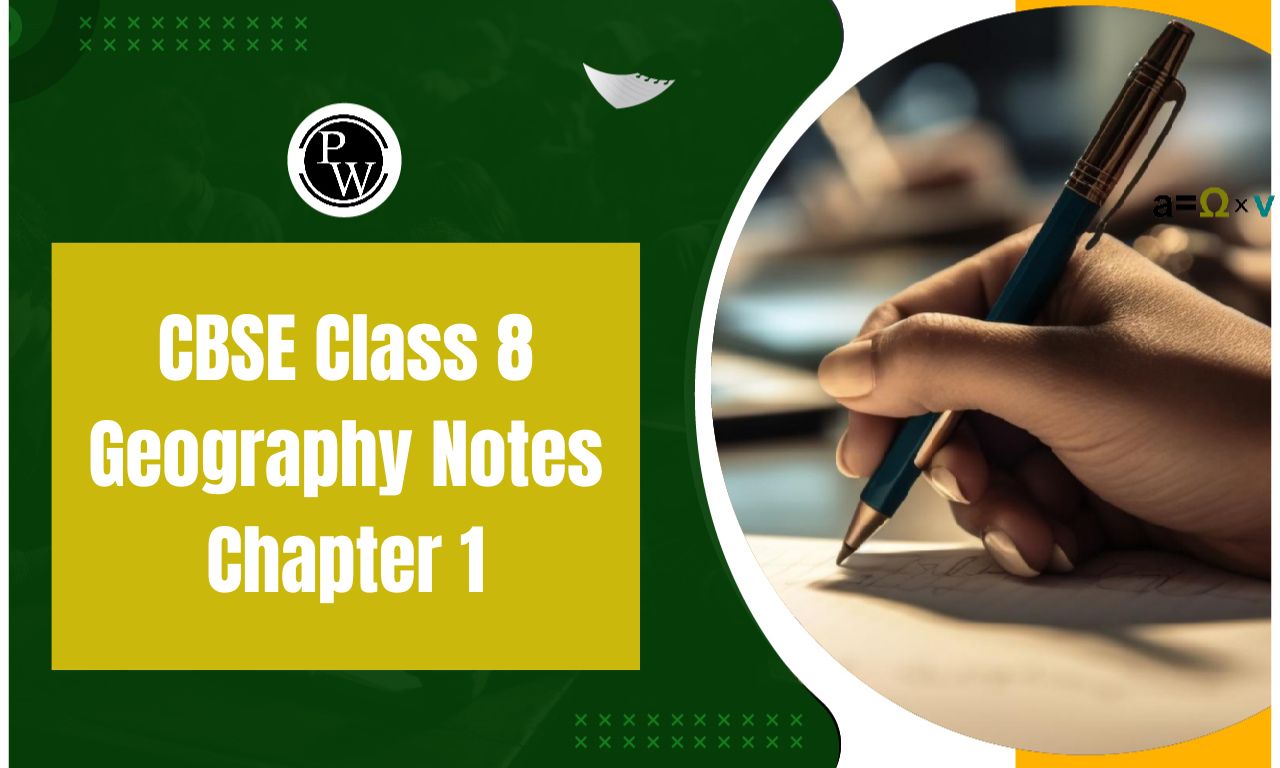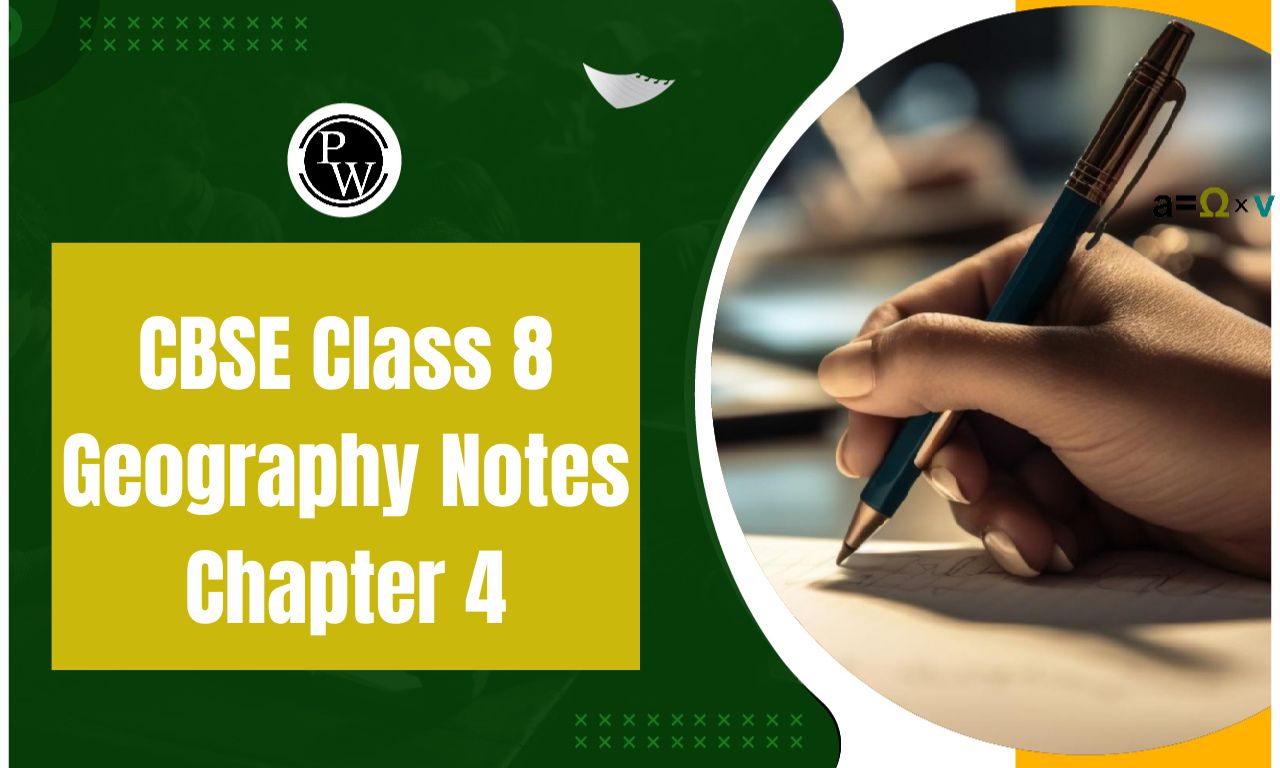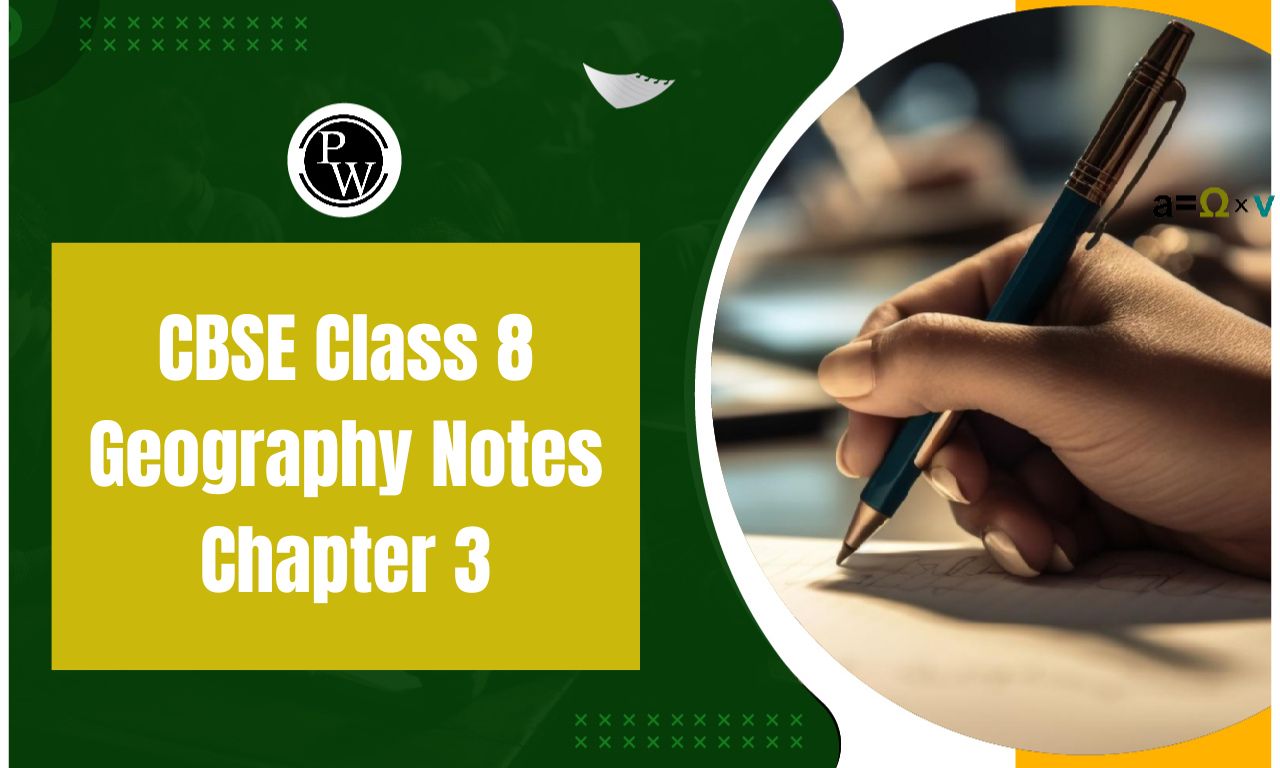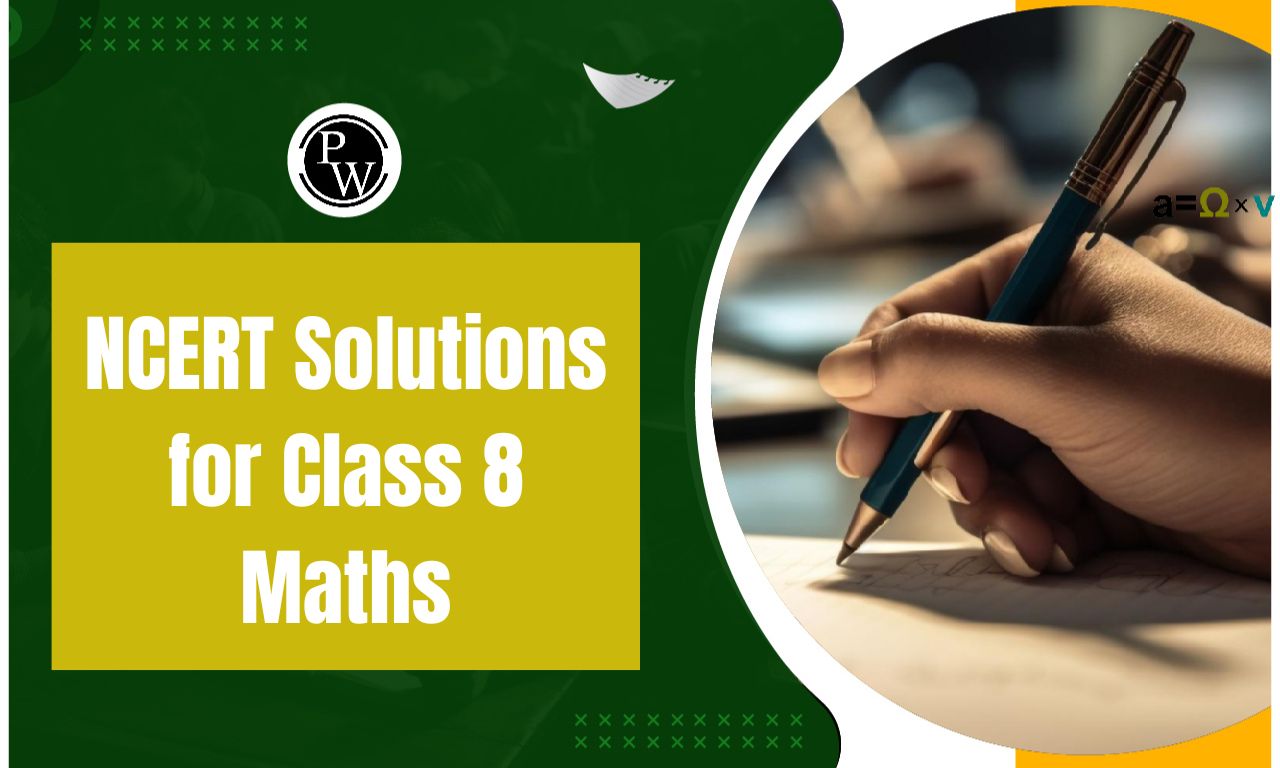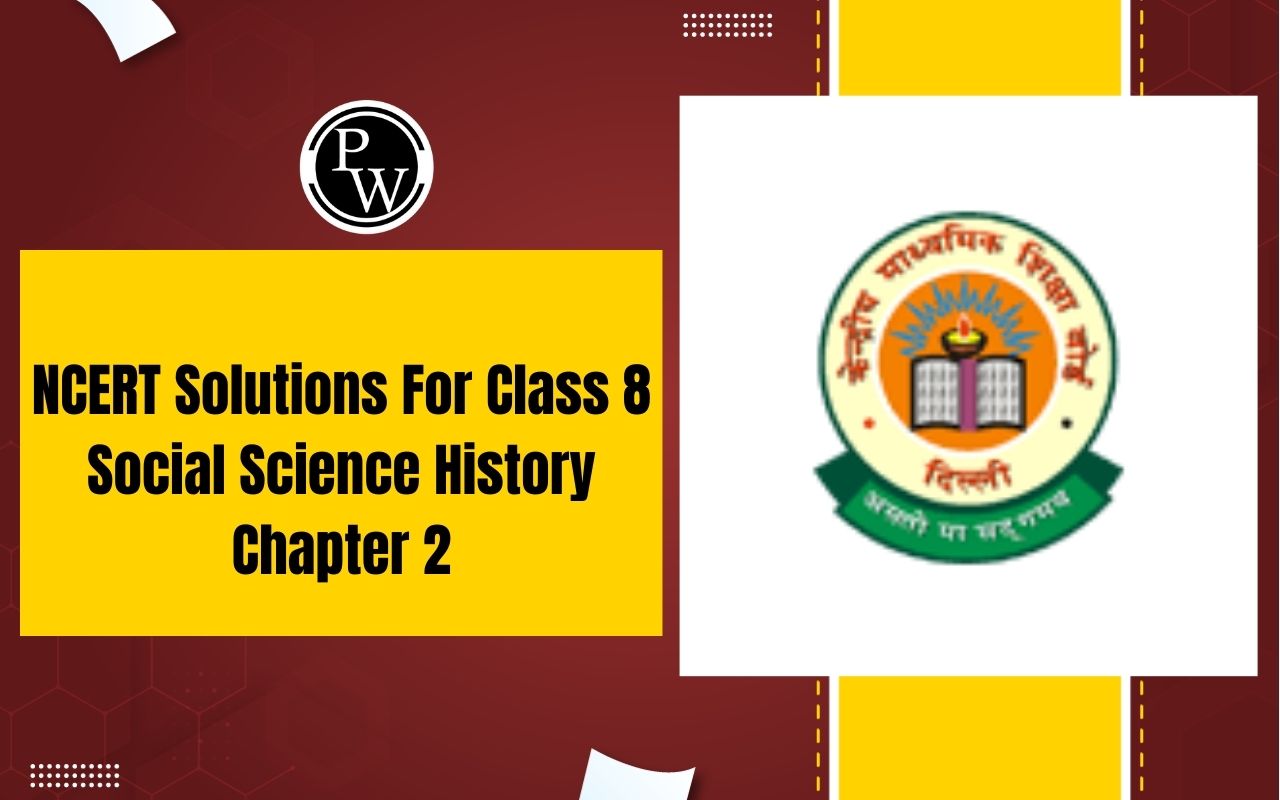
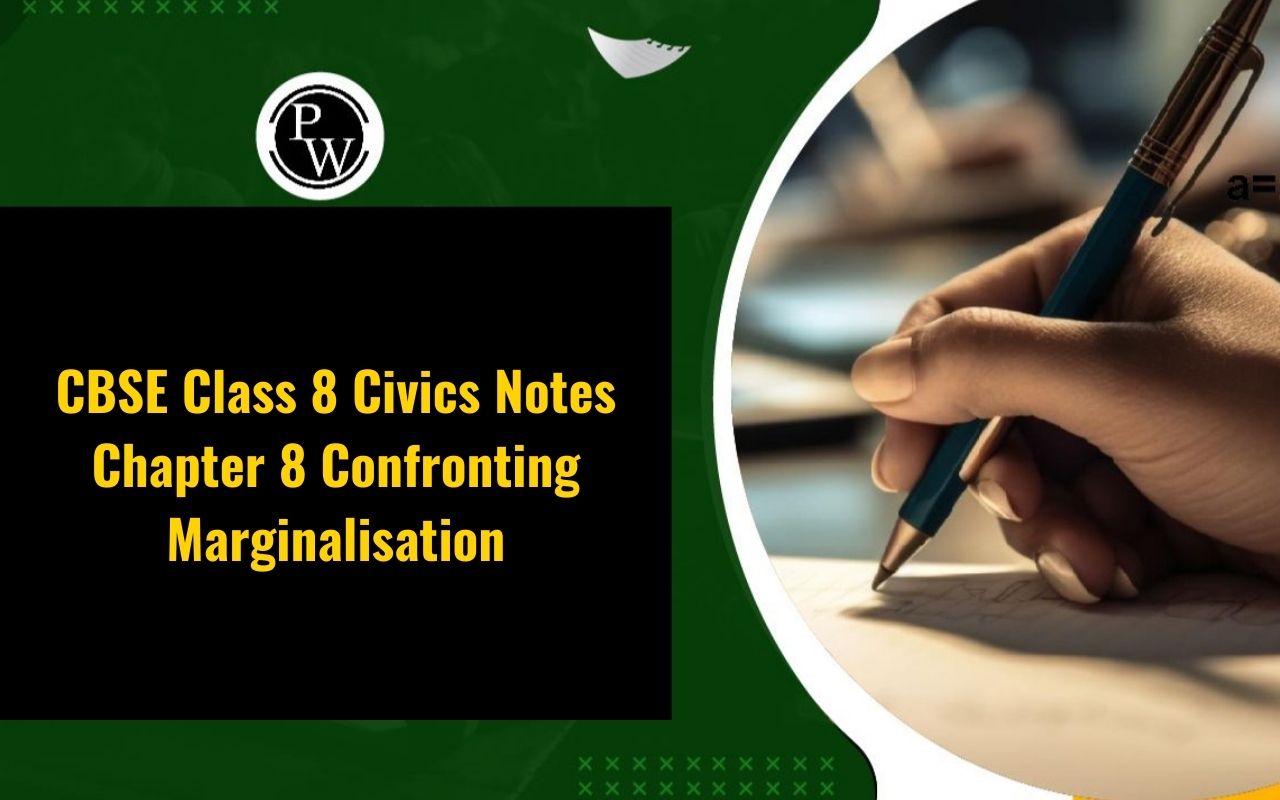
CBSE Class 8 Civics Notes Chapter 8: Here are the notes which are important for Class 8 CBSE Civics. The chapter highlights how these groups, despite their limited power, have engaged in a range of actions - from seeking religious solace and armed struggle to pursuing self-improvement, education, and economic upliftment.
It shows that there is no single approach to combating marginalisation rather, the methods used reflect the unique circumstances of each group. For effective exam preparation students should refer to the CBSE Notes for Class 8 Civics Chapter 8 which provide a detailed understanding of how these groups confront their struggles and work towards achieving equality and justice.CBSE Class 8 Civics Notes Chapter 8 Confronting Marginalisation Overview
These notes are prepared by subject experts of Physics Wallah provide a detailed overview of CBSE Class 8 Civics Chapter 8 Confronting Marginalisation. This chapter explain the diverse strategies used by marginalized groups to address and challenge inequality and discrimination. It covers various approaches, including seeking religious solace, engaging in armed struggle, pursuing self-improvement, and striving for economic upliftment. For a detailed understanding and effective exam preparation students should refer to these expert-prepared notes.CBSE Class 8 Civics Notes Chapter 8 PDF
Here are the notes for CBSE Class 8 Civics Chapter 8 Confronting Marginalisation which are important for exam preparation. The PDF link is available below providing a detailed overview of the chapter.CBSE Class 8 Civics Notes Chapter 8 Confronting Marginalisation PDF
CBSE Class 8 Civics Notes Chapter 8 Confronting Marginalisation
Below we have provided CBSE Class 8 Civics Notes Chapter 8 Confronting Marginalisation-Confronting Marginalisation
Confronting marginalisation involves understanding how marginalized groups utilize the Constitution of India to challenge their exclusion and seek justice. These groups often invoke constitutional rights as a basis for their struggles, leveraging the legal framework to combat exploitation and discrimination. The Constitution provides several protections and guarantees to ensure equality and safeguard the rights of marginalized communities. To address the issues faced by these groups, the government formulates policies aimed at enhancing their access to development and resources. These policies are designed to correct historical injustices and provide opportunities for economic, social, and educational advancement. By translating constitutional rights into actionable laws and policies, the state aims to promote inclusivity and reduce the disparities experienced by marginalized populations. This process involves continuous efforts to ensure that the benefits of development reach all sections of society, thereby fostering a more equitable and just environment.Laws for the Marginalised
In India, specific laws and policies have been enacted to support marginalized communities and promote social justice. The government, both at the State and Central levels, implements these laws to address historical inequities and ensure equal opportunities for Dalits and Adivasis. One prominent example is the reservation policy, which aims to provide equitable access to education and employment opportunities. This policy reserves seats in educational institutions and government jobs for Dalits, Adivasis, and other backward classes. The underlying principle is that, due to centuries of exclusion and deprivation, these communities require affirmative action to level the playing field and achieve social and economic advancement. The reservation policy operates by creating lists of Scheduled Castes (Dalits), Scheduled Tribes (Adivasis), and other backward classes. Candidates applying for educational programs or government positions must present proof of their caste or tribe status. If their caste or tribe is listed, they are eligible for reservation benefits. For educational admissions, especially to professional institutes, governments set specific cut-off marks. Only candidates from reserved categories who meet or exceed these marks can secure admission. These students may receive special scholarships to support their education. Through these measures, the government seeks to counteract long-standing disparities and promote social inclusion and equality.Benefits of CBSE Class 8 Civics Notes Chapter 8 Confronting Marginalisation
- Comprehensive Understanding : The notes provide a thorough overview of how marginalized groups have historically confronted and addressed their marginalisation. This includes detailed explanations of their struggles and the strategies they have employed, such as armed struggle, religious solace, and economic upliftment.
- Insight into Legal Protections : Students gain valuable insights into how the Indian Constitution and specific laws protect marginalized communities. The notes cover how Fundamental Rights are invoked to address injustices and the role of laws like the Scheduled Castes and Scheduled Tribes (Prevention of Atrocities) Act, 1989, in safeguarding these rights.
- Contextual Relevance : By exploring the ways in which marginalized groups challenge inequalities, the notes help students understand the real-world applications of constitutional principles and laws. This contextual understanding aids in connecting theoretical knowledge with practical implications.
- Exam Preparation : The notes are structured to highlight key concepts, historical events, and legislative measures relevant to the chapter, making them an excellent resource for exam revision. They help students focus on important topics and prepare effectively for questions related to marginalisation and legal frameworks.
- Encouragement of Critical Thinking : The notes encourage students to think critically about social justice and the role of laws in addressing inequalities.
CBSE Class 8 Civics Notes Chapter 8 FAQs
Why is understanding marginalisation important for students?
Understanding marginalisation is crucial for students as it helps them grasp the complexities of social inequality and discrimination. It fosters empathy, awareness of social justice issues, and a deeper understanding of the role of laws and policies in protecting marginalized communities.
How do marginalized groups use the Constitution to their advantage?
Marginalized groups use the Constitution by invoking their Fundamental Rights to challenge injustices and discrimination. They draw on these rights to demand equal treatment and protection under the law, and to influence the formulation of new laws and policies that address their specific needs.
What are some key laws mentioned in Chapter 8 that protect marginalized communities?
Key laws include the Scheduled Castes and Scheduled Tribes (Prevention of Atrocities) Act, 1989, which protects Dalits and Adivasis from discrimination and violence. This law outlines specific crimes and penalties related to the mistreatment of these communities.
How does the reservation policy work in India?
The reservation policy provides seats in educational institutions and government jobs for Dalits, Adivasis, and other backward castes. Students and job applicants from these categories need to provide proof of their caste or tribe to avail of these benefits. This policy aims to counteract historical disadvantages and promote equal opportunities.
What role does the government play in supporting marginalized groups?
The government supports marginalized groups through policies and schemes that provide educational and economic opportunities. This includes subsidies, scholarships, and reservations in education and employment. The aim is to bridge the gap created by historical and social disadvantages.
🔥 Trending Blogs
Talk to a counsellorHave doubts? Our support team will be happy to assist you!

Check out these Related Articles
Free Learning Resources
PW Books
Notes (Class 10-12)
PW Study Materials
Notes (Class 6-9)
Ncert Solutions
Govt Exams
Class 6th to 12th Online Courses
Govt Job Exams Courses
UPSC Coaching
Defence Exam Coaching
Gate Exam Coaching
Other Exams
Know about Physics Wallah
Physics Wallah is an Indian edtech platform that provides accessible & comprehensive learning experiences to students from Class 6th to postgraduate level. We also provide extensive NCERT solutions, sample paper, NEET, JEE Mains, BITSAT previous year papers & more such resources to students. Physics Wallah also caters to over 3.5 million registered students and over 78 lakh+ Youtube subscribers with 4.8 rating on its app.
We Stand Out because
We provide students with intensive courses with India’s qualified & experienced faculties & mentors. PW strives to make the learning experience comprehensive and accessible for students of all sections of society. We believe in empowering every single student who couldn't dream of a good career in engineering and medical field earlier.
Our Key Focus Areas
Physics Wallah's main focus is to make the learning experience as economical as possible for all students. With our affordable courses like Lakshya, Udaan and Arjuna and many others, we have been able to provide a platform for lakhs of aspirants. From providing Chemistry, Maths, Physics formula to giving e-books of eminent authors like RD Sharma, RS Aggarwal and Lakhmir Singh, PW focuses on every single student's need for preparation.
What Makes Us Different
Physics Wallah strives to develop a comprehensive pedagogical structure for students, where they get a state-of-the-art learning experience with study material and resources. Apart from catering students preparing for JEE Mains and NEET, PW also provides study material for each state board like Uttar Pradesh, Bihar, and others
Copyright © 2025 Physicswallah Limited All rights reserved.
